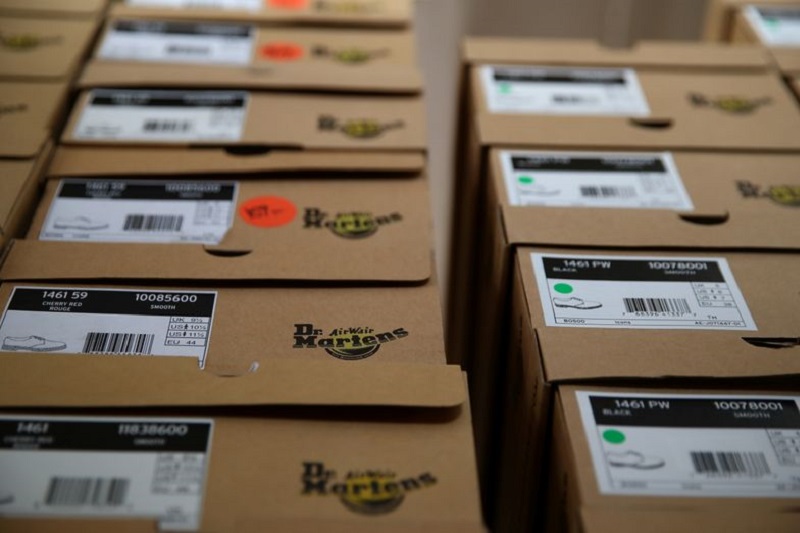
© Reuters
By Geoffrey Smith
Investing.com — Shares in Dr. Martens (LON:) slumped on Thursday after the U.K.-based footwear group said its direct sales business was weaker than expected in the first half, and that margins will come under increasing pressure in the next six months due to the pound’s weakness.
The company said it expects its full-year margin before interest, taxes, depreciation and amortization to be between 1 and 2.5 percentage points lower than in fiscal 2022, due to the dollar’s appreciation, which has raised shipping and other input costs. In addition, it said it will continue to plow money into the business, something that is likely to put further pressure on profits in the near term.
Dr. Martens’ stock fell 20% in response, reversing all the progress it had made after the group issued more upbeat, but vague, guidance two weeks ago.
Even so, the company raised its interim dividend by 28% to 1.56 pence a share.
Pretax profit fell 5% and earnings per share fell 6% from a year earlier in the six months through September, as the group’s efforts to drive growth through its own-brand stores fell short of the high expectations set for the division. The direct-to-consumer division – which typically generates higher margins than its wholesale business – saw sales rise 21% but, at 43% of the sales mix, is still well short of the 60% target. Group revenue rose 13% to £419 million (£1=$1.2119).
The group said trading had weakened throughout the second quarter, and has been “variable” since the start of the current quarter in October. While the key holiday season figures should look good on a year-on-year basis, that is largely because last year’s holiday sales were hurt by supply chain bottlenecks that restricted sales in the U.S. and Japan.
Dr. Martens nonetheless kept its full-year revenue guidance unchanged, saying it should rise by just under 20% from last year. It noted that a strong order book and the delayed recognition of some £10 million in revenue from sales in the first half should support revenue in the remainder of the year.
It also upheld its medium-term guidance of revenue growth of around 15%, and an EBITDA margin of 30%, saying it expected to be able to raise prices further to offset input cost inflation.


Be the first to comment